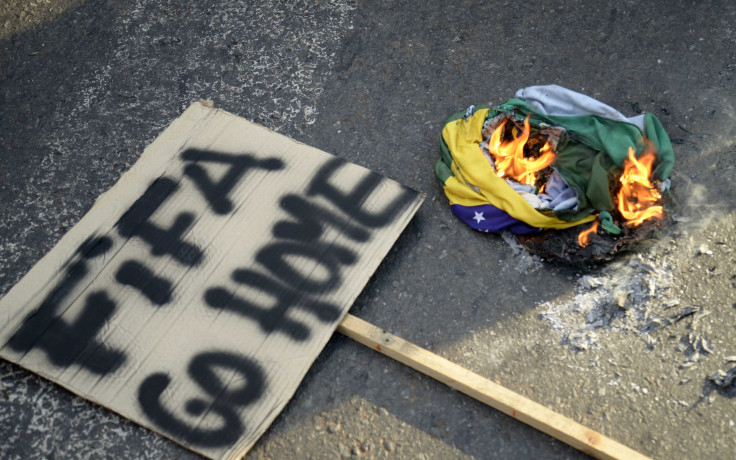
Six days from now, the first World Cup games kick off in Brazil. The government should be sweating bullets. In the latest episode of what are now year-long protests sparked by the games, subway workers in Sao Paolo announced on Thursday they would go on strike after negotiations fell through on a pay raise. The strike has affected more 4 million daily passengers in the city’s subway and overland trains, according to the Associated Press, and could send fans scrambling for alternative means to reach the newly built (though still unfinished) Itaquerao stadium if the dispute isn’t resolved by June 12.
The subway workers’ union rejected an offer of an 8.7 percent hike, insisting on at least 10 percent; afterward, union president Altino Melo dos Prazeres pointed to the $431 million price tag on the newly built Itaquerao stadium in explaining the union’s decision to demand concessions from the state government company that manages transportation in the city. The union will be accruing fines of $44,000 each day of the strike after a judge ordered it to work at full capacity during rush hours and 70 percent capacity in off hours, according to Al Jazeera America.
The subway workers aren’t alone. Bus drivers walked off the job in May, stranding hundreds of thousands. On Wednesday, an estimated 10,000 people with the Homeless Workers’ Movement marched in Sao Paolo to demand more government spending on health, education and subsidized transport, according to BBC. Meanwhile, watchdog Amnesty International warned Brazilian authorities against cracking down on protestors during the games, calling it a “crucial test.” Hundreds have been injured by military riot-control forces in protests since last June.
© 2025 Latin Times. All rights reserved. Do not reproduce without permission.




